One of history’s incredible scoundrels, Herod the Great is most popular for his endeavor to eliminate his adversary, the “Ruler of the Jews” by requesting the execution of all male babies in Bethlehem not long after the introduction of Jesus Christ. Herod was a Roman manikin who was neither the authentic lord of Judea, popular with his kin or even truly Jewish. So he had a long list of motivations to be neurotic about dangers to his rule. Be that as it may, while he killed individuals from his own family, Herod presumably didn’t structure the slaughter of children, as St. Matthew claims. Nor was his rule all terrible for the Kingdom of Judea. Here are 26 realities that give a more full image of the life and demise of Herod the Great.
26-Herod was not Judean by birth
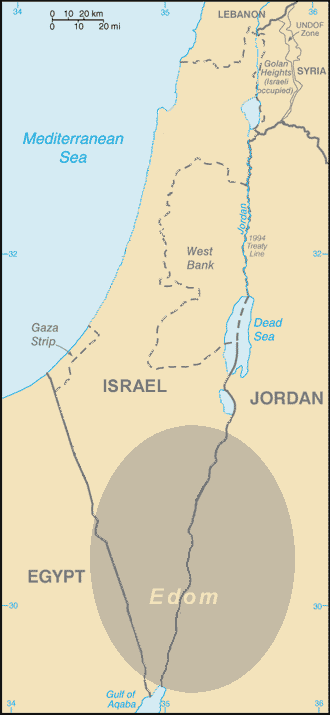
Herod became King of Judea in 37 BC. Notwithstanding, he was not a Judean by birth. Herod was brought into the world in around 72/73 BC in the Kingdom of Idumea or Edom. Edom was a neighbor of old Israel, possessing what is currently southwest Jordan. As indicated by legend, the Edomites were the relatives of Esau, the oldest child of Isaac, who offered his inheritance to his more youthful twin sibling Jacob for a bowl of pottage. Be that as it may, the God of Israel talented Esau with the place where there is Edom as remuneration. After some time, Edom was frequently in clash with Judea and once in a while subject to it. In any case, the Judeans consistently viewed the Edomites as outsiders.
25-Nor was he Strictly Jewish

As an Arabic gathering, the Edomites were not normal devotees of the Jewish confidence. Be that as it may, huge quantities of Edomites changed over to Judaism. Herod’s dad, Antipater was one of them. Notwithstanding, his mom, Cyprus was the girl of a Nabataean respectable from Petra. As per the Code of Jewish law, to be viewed as Jewish, a kid must be conceived of a Jewish mother-, which Herod was definitely not. So despite the fact that Herod was a rehearsing Jew, he was viewed as a pariah.
24-Herod’s Father, Antipater established the frameworks for his Son’s future.
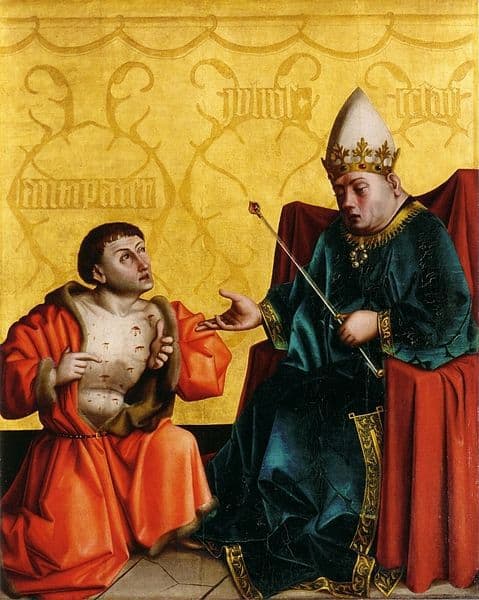
Herod’s dad, Antipater, owed his initial capacity to his Nabataean associations and sponsorship by the Pharisees, a Jewish strict gathering made out of laymen and recorders who arose as an unmistakable gathering after the Maccabean revolt of 165-160 BC. Nonetheless, Antipater’s large break came when he supported the Hasmonean Prince Hyrcanus as a possibility to the seat of Judaea. The Roman general, Pompey, likewise upheld Hyrcanus and interceded for his sake. Hyrcanus became lord, while Antipater went about as the underlying influencer. Antipater kept on pursuing Roman help astutely, watchfully favoring Julius Caesar as opposed to his old partner, Pompey, during the Roman common wars. As a prize, Caesar made Antipater a Roman resident in 47 BC-and named him the Governor of Judea.
23-Herod became Governor of Galilee and rose to the situation of Ethnarch of Judea.

Caesar made Herod a Roman Citizen simultaneously as Antipater as an affirmation of his help. He likewise made the more youthful man Governor of Galilee as an extra prize. In 44 BC, furious Judeans killed Antipater while he was gathering silver requested by Caesar’s professional killer, Cassius. Herod immediately agreed with Mark Anthony and Octavian after the annihilation of Caesar’s executioners. Anthony made Herod and his sibling, Phasael Tetrarchs or ‘leaders of a fourth’ of Judea. In 43 BC, Herod became “ethnarch” or legislative head of Judea in his dad’s place. Be that as it may, only three years after the fact, the Parthians attacked Judea. They eliminated Hyrcanus from the seat supplanting him with his nephew, Antigonus. The supportive of Roman Herod had no real option except to escape to Rome.
22-The Romans made Herod King of Judea

Once in Rome, Herod busied himself making companions and impacting individuals. Notwithstanding Mark Anthony, he likewise prevailed upon the future Emperor Augustus-Caesar’s beneficiary Octavian and Octavian’s incredible companion and partner Marcus Vipsanius Agrippa. It was through these compelling companions that Herod at last figured out how to convince the Roman senate to help his motivation and, in 40 BC, the Senate casted a ballot Herod the title of King of the Jews. Herod, nonetheless, needed to hold on to take up his seat until 37 BC. Helped by the powers of Mark Anthony, Herod at long last reclaimed Jerusalem from the Parthians and their manikin Antigonus.
21-Herod may have acquired a seat. In any case, he additionally lost his sibling.

Herod didn’t acquire the seat without enduring misfortunes – explicitly, his senior sibling, Phasael. Phasael was respectable and fearless. At the point when the Parthian’s attacked, instead of join Herod, their mom, and sister in their trip to Rome, Phasael stayed along the edge of King Hyrcanus and battled to hold Jerusalem. The Parthians caught the pair and gave them over to the new ruler, Antigonus. Antigonus had his Uncle ruined to refute him for the Jewish high organization. Phasael was resolved to get away from this disfavor. So he ended it all by running his cerebrums out. Herod probably held Phasael in some regard, for he later respected his sibling’s memory by naming another city “Phasaelis” after him, just as a pinnacle in his new castle.
20-Herod cleared out the male Hasmonean line to solidify his force.
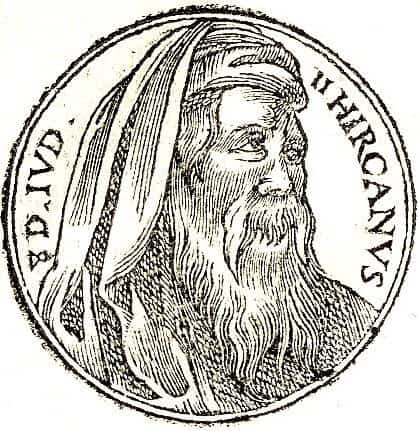
Imprint Anthony executed Antigonus soon after the attack of Jerusalem, as he saw that Herod’s appreciation would make him a helpful Eastern partner and that while he stayed alive, Antigonus would stay a danger. Throughout the following not many years, Herod likewise made strides of his own to guarantee that no Hasmonean Prince could guarantee the seat of Judea once more. In 36 BC, he welcomed the removed and mutilated Hyrcanus II back from outcast to live as a respected visitor at his court. That very year, he slaughtered Hyrcanus’ grandson, Aristobulus-and in 30 BC executed Hyrcanus himself.
19-Notwithstanding, he additionally wedded Mariamne, a Hasmonean Princess to loan his rule additional authenticity
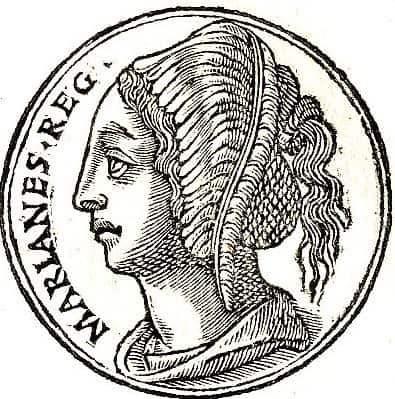
Herod realized that a reconquest of Judea with Roman sponsorship was not going to be sufficient to win him the help of the Jewish public. Thus, to loan his rule a feeling of authenticity, in 37 BC, Herod wedded Mariamne, a Hasmonean Princess. Mariamne’s mom, the little girl of the damaged previous King Hyrcanus, had organized the match as a protection strategy for the Hasmoneans in 42 BC. Be that as it may, the couple didn’t commend their marriage until Herod became King. Herod might not have recently hitched Mariamne for her family associations for she was legitimately wonderful and, as indicated by Josephus, Herod was infatuated with her.
18-Herod Ruthlessly Banished his first spouse and child.
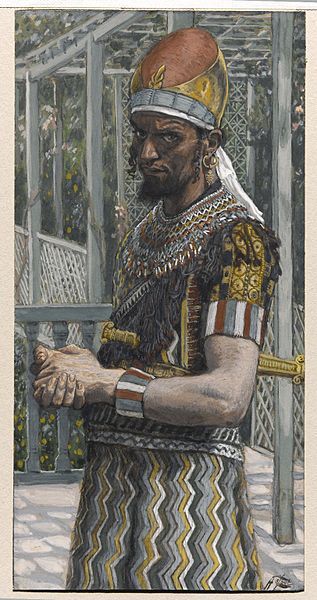
Mariamne was not Herod’s first spouse. He at first wedded Doris or ‘Sarah,’ a lady from Jerusalem. The pair had one child, Antipater. At the point when he chose to wed Mariamne, Herod didn’t simply separate from Doris – he additionally banished her. When her and Mariamne had children, he sent Antipater to join his mom, just permitting him to re-visitation of Jerusalem for celebrations. Herod’s first family remained exiled until after Mariamne’s passing in 14 BC. First Antipater and afterward Doris got back to Herod’s side momentarily before she was by and by sent away because of court interests.
17-Herod had a meddling relative.
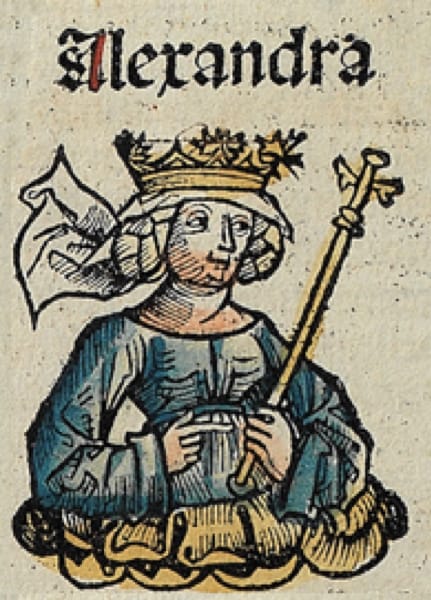
Herod may have had a valid justification for clearing out his male Hasmonean parents in law. For in 35 BC, his relative, Alexandra started to plot to supplant him with her high school child, Aristobulus. Alexandra began by selecting her little girl, Mariamne, to assist her with convincing Herod to supplant his High Priest, Hananel with the 16-year-old Aristobulus. The new High minister was well known with general society, causing Herod a deep sense of caution. In any case, when Alexandra moved toward Cleopatra and Mark Anthony to prevail upon them to Aristobulus’ side, Herod needed to act. He was frightened to the point that Anthony would move his devotion to his brother by marriage, he organized a worker to suffocate the teen during a gathering in Jericho.
16-Herod changed sides from Mark Anthony to Augustus
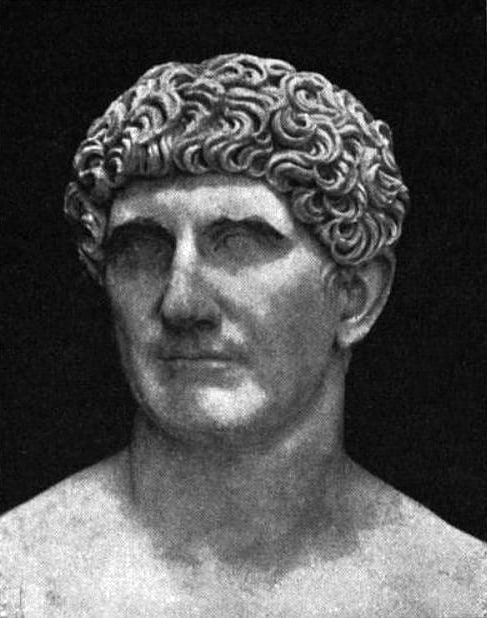
Herod realized that Cleopatra despised him and desired his regions. So when Anthony called him to Egypt after the homicide of Aristobulus, Herod accepted there was a genuine chance his benefactor would execute him. Anthony, notwithstanding, saved him and Herod remained faithful to him when common war broke out among Anthony and Augustus in 31 BC. At the point when he understood he had supported the washout, nonetheless, Herod met with Augustus on Rhodes. He announced that he would show a similar reliability to Augustus as he needed to Anthony-if Augustus proceeded to his standard. Herod at that point vowed troops to help polish Anthony off. Anthony’s self destruction discredited the utilization of these powers. In any case, Augustus was a realist. He perceived Herod’s helpfulness as a partner in the east, especially as Herod had recently put down a revolt by the Nabataean Arabs. Along these lines, in 30 BC, Augustus affirmed Herod’s situation as King of Judea and added to his regions.
15-Herod started a Civic Building project to prevail upon the Jewish People.
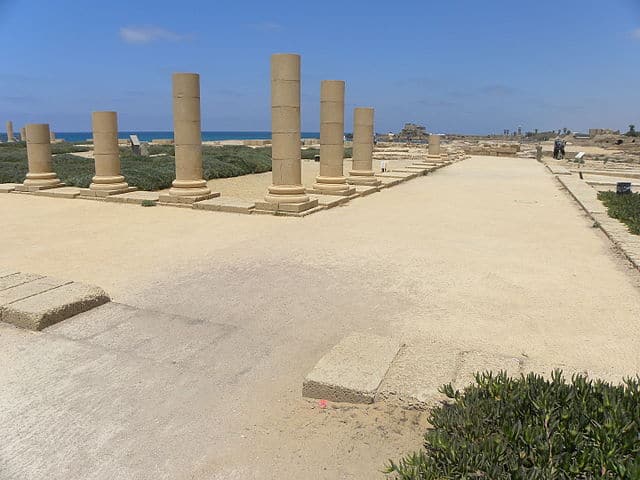
In the middle discarding badly designed parents in law and moving loyalties, Herod embraced an enormous structure program. In 31 BC, a quake crushed Judea, annihilating structures and murdering thousands. Herod’s reaction was not simply to supplant the lost structures, however to remake greater and better in the desire for prevailing upon his kin. In Jerusalem, he developed another market, a theater and amphitheater and another conference center for the Sanhedrin-just as another royal residence for himself. In 20 BC, he reconstructed the sanctuary of Jerusalem in lavish design, adhering carefully to Jewish law. Nonetheless, the port of Caesarea, based on the new domains surrendered to him by Augustus was his highest accomplishment, a magnum opus of designing and engineering.
14-Some portion of this Program reinforced Herod’s military guards.

Before he started his public structure program, Herod began fortifying Judea’s guards. He began reconstructing the fortresses in Jerusalem, developing new city dividers and another bastion to watch the Temple of Jerusalem. Herod named the new post “The Antonia” – after his supporter Mark Anthony. The Antonia aside, Herod likewise constructed another post at Masada. The Romans endured Herod’s fortresses since he had demonstrated his value policing the locale, accordingly supporting Roman strategy. In any case, Herod’s fortresses probably made them uncomfortable. They had no reason. Herod remained consistent with his Roman partners.
13-Notwithstanding Herod’s earnest attempts, the Jewish People despised him.
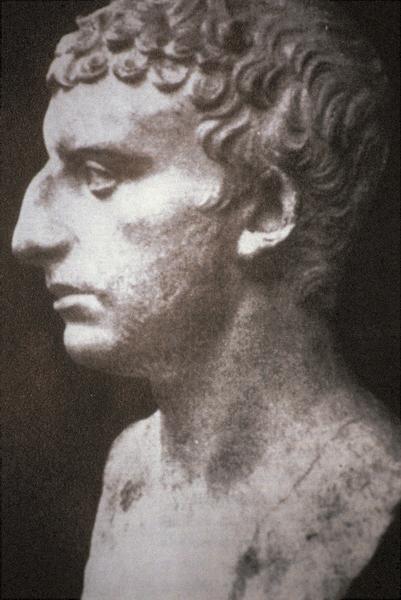
Notwithstanding his endeavors to improve the foundation of Judea, the Judean public disdained Herod. This aversion was not only on account of his questionable Jewishness for Herod had been well known enough when he was legislative leader of Galilee-for the most part since he effectively pursued the crooks tormenting the open country. Nor was it since he had killed the majority of the Hasmonean illustrious family. As per Josephus, the central explanation Herod was detested was because of his unnecessary tax collection. Rates changed between 8.6% to 10.7% – and Herod permitted the utilization of brutality to guarantee assortment of expenses in full. Amusingly, charges were high to empower Herod to back the structure program he so trusted would win him fame.
12-He was similarly disagreeable with the Sanhedrin
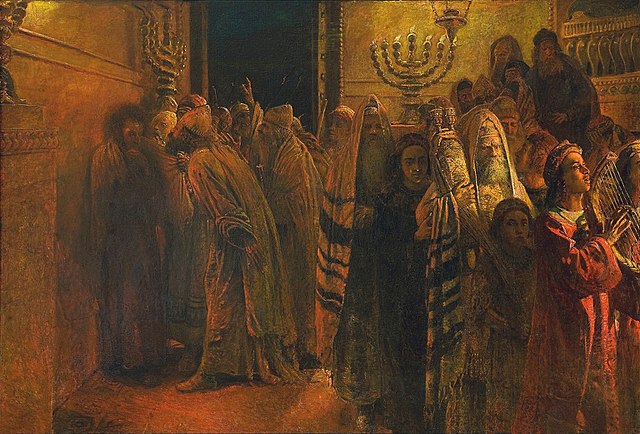
The Sanhedrin was the board of 71 rabbis who filled in as Judea’s clerical appointed authorities. They likewise loathed Herod. Sanhedrin ill will originated before Herod’s rule as King. While he was as yet a tetrarch, the chamber had revealed Herod’s mercilessness to Mark Anthony. Nonetheless, the Roman excused the charges. When Herod became King, matters deteriorated. Herod couldn’t be the consecrated minister, yet he could name them. So he picked men thoughtful to him. The devout minister’s reliance on Herod expanded with the way that the workplace was no longer forever, which means they relied upon Herod’s kindness to remain in office. More regrettable still, Herod moved a portion of the Sanhedrin’s forces to his regal court, which was progressively populated by outsiders.
11-Herod’s disagreeability was aggravated by his adoration for Greek Culture.

Herod’s Hellenism aggravated his disagreeability. His youth mentor, the Grecian Nicolaus of Damascus had ingrained in Herod an affection for Greek culture and reasoning. It was an esteem that Herod effectively followed up on as King. He turned into a benefactor of the city of Athens-and the Olympic games, which he financed and managed in 12 BC. Herod planned his port of Caesarea on Greek lines. He likewise had his cash planned consolidating a Greek legend “Herodou Basileos” close by an incense burner on a mount – a urgent endeavor to show his thought of Orthodox Jewish practice. It didn’t work. Most Judean’s considered his to be of Hellenism as another indication of their King’s non-Jewishness.
10-This Opposition made Herod perilously jumpy.
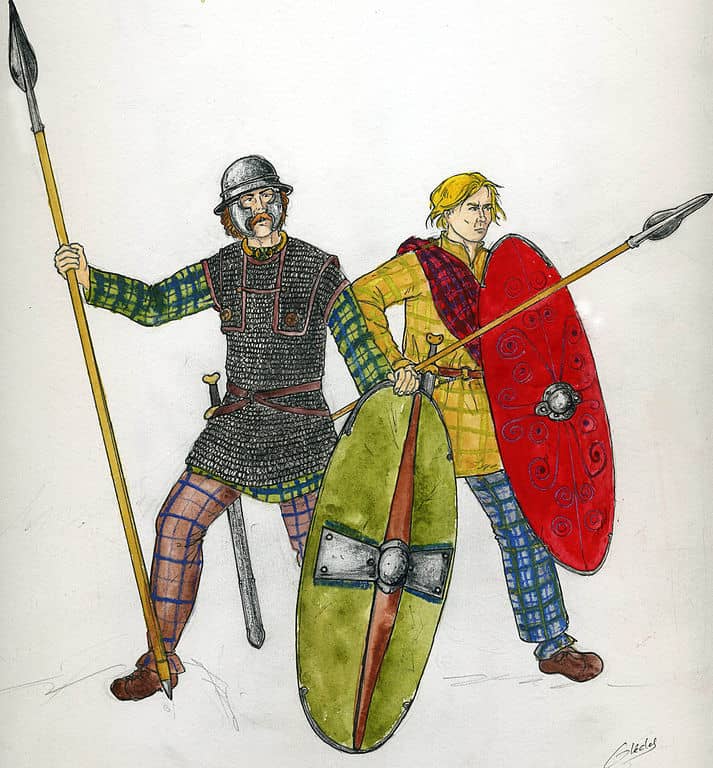
Plotting clerics, family members, and general discontent prompted Herod getting progressively jumpy about his situation as King. He started to utilize an ever increasing number of non-Jews in places of trust – particularly among those depended with his wellbeing. Beside unfamiliar squires and counsels, the King had an individual watchman of more than 2000 men, made out of Thracians, Germans and a contingent of Celtics who once served Cleopatra. These unfamiliar arrangements may have caused the King to feel much improved. In any case, they don’t did anything to mitigate the developing disdain towards Herod in the populace. So Herod set up a mystery police power to uncover plots and schemes.
9-Herod slaughtered his #1 spouse, Mariamne in light of his distrustfulness.
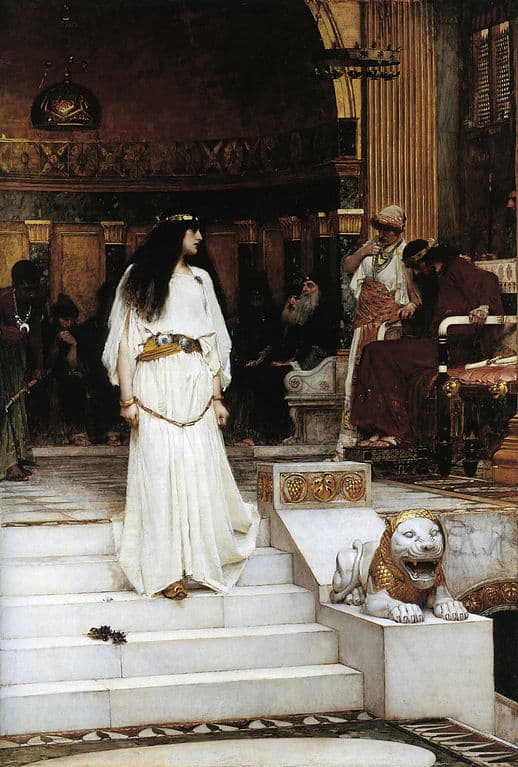
After the death of Aristobulus, Herod was called to Egypt to account for himself to Mark Anthony. Unfortunate of death, he left his better half Mariamne under the watchful eye of his Uncle, Joseph, with express requests to slaughter her if Anthony executed him. Josephus told Mariamne of Herod’s aims, which left the youthful sovereign naturally severe. Matters turned out to be more awful when Herod’s mom and sister, Salome, blamed Mariamne for infidelity with Joseph. Herod accepted his uncle would have possibly double-crossed capital punishment to Mariamne in the event that he had plans on her. So he executed him yet saved Mariamne. Notwithstanding, throughout the long term Mariamne’s animosity developed such a lot of that when Salome blamed her for plotting to harm Herod, Herod trusted it. So in 29 BC, Herod executed his once dearest spouse.
8-Herod slaughtered three of his children because of the very suspicion that murdered his significant other.
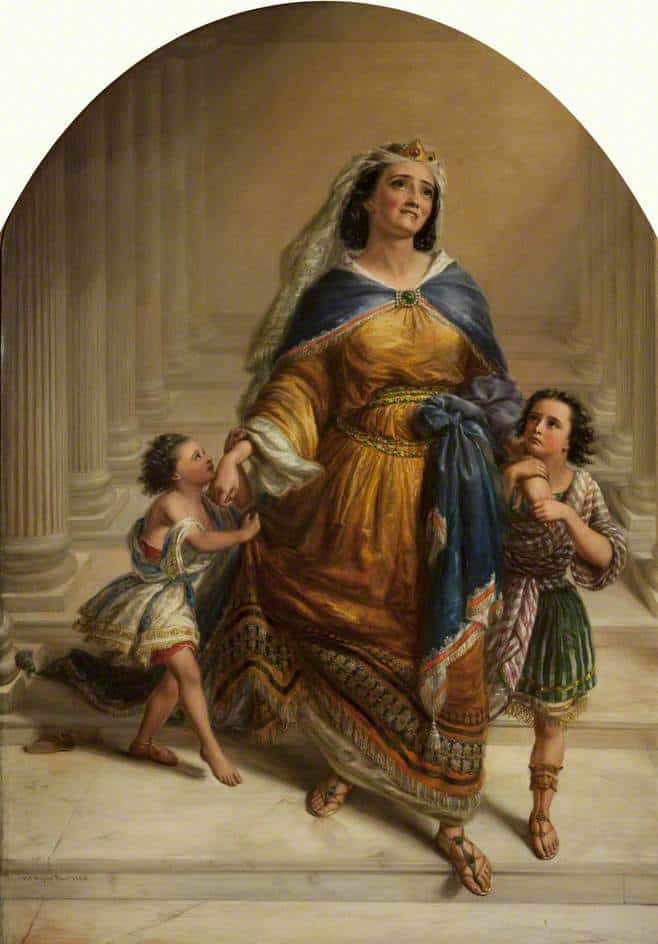
Mariamne and Herod’s children, Alexander and Aristobulus were raised in Rome. In 7 BC, they got back to Judea, holding a severe disdain towards their dad. The inclination was common. Herod detested the two young fellows on the grounds that the individuals cherished them and their Hasmonean blood gave them a strong case to the seat. At this point, Antipater, Herod’s oldest child, had been reviewed from banish. He presently started to neutralize his siblings and persuaded Herod that Alexander and Aristobulus were plotting his demise. So in 7 BC, Herod had his two children choked in Sebaste, the spot he wedded Mariamne, in spite of the dissent of Emperor Augustus. With respect to Antipater, he followed his siblings in 4 BC when Herod had him executed for injustice – five days before his own passing.
7-Herod may have murdered his youngsters. Be that as it may, he might not have “killed the honest people ” as the accounts guarantee.
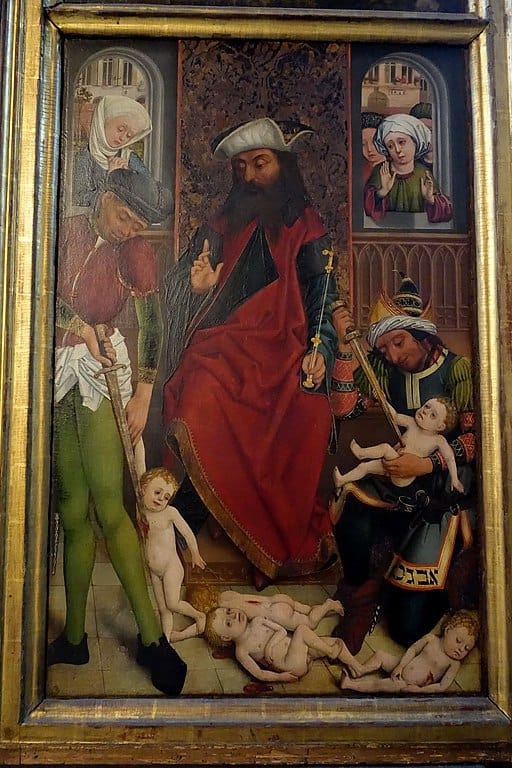
Herod’s most notorious wrongdoing is the Massacre of the Innocents in Bethlehem. On becoming aware of the introduction of an adversary the “ruler of the Jews” Herod, as distrustful as could be expected, requested his officers to slaughter all the male newborn children younger than two. The episode guaranteed Herod a spot ever. Be that as it may, it most likely won’t ever occur. Out of the four accounts chronicling Christ’s life, just St. Matthew specifies the occasion. Similarly quiet is Herod’s unstinting biographer, history specialist Josephus. Herod additionally kicked the bucket in 4 BC – four years before Christ’s alleged birth. Regardless of whether Christ was brought into the world in the most recent year of Herod’s rule, as certain antiquarians accept, most currently acknowledge that St. Matthew utilized Herod’s lethal standing to make a story that stressed the meaning of Christ’s introduction to the world.
6-Altogether, Herod wedded multiple times.
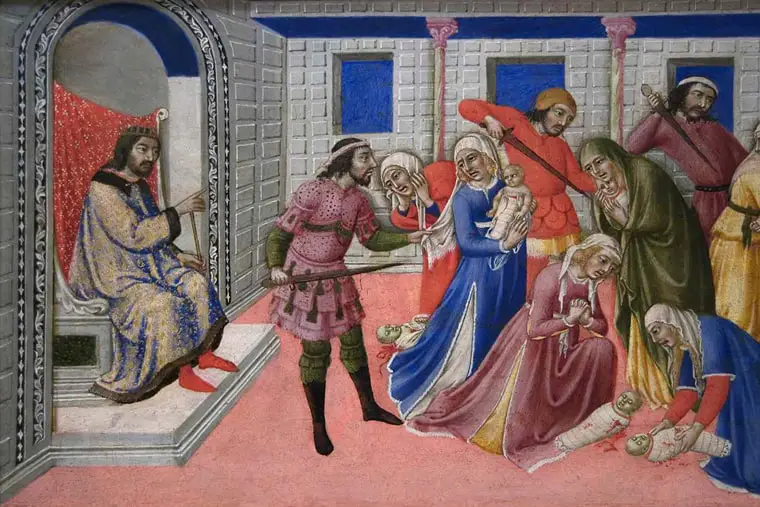
Mariamne and Doris aside, Herod wedded multiple times, which created a lot of kids to compensate for the ones he killed. The names of two of his spouses are lost. 28 BC was a guard year for spouses as Herod wedded a Samarian lady named Malthace and a Jerusalem lady, Cleopatra. Herod’s last group of spouses, Pallas, Phaedra, and Elpis came in 16 BC and created him just little girls. In any case, not long after Mariamne’s passing, Herod wedded another Mariamne, the girl of Simon, a minister. Mariamne II had a child, additionally named before Herod separated from her in 6 BC. Out of the entirety of Herod’s kids from Malthace and Cleopatra, three of the young men, Antipas, Archelaus and Philip figured out how to endure their dad and acquire his Kingdom.
5-Herod passed on an exceptionally terrible demise.
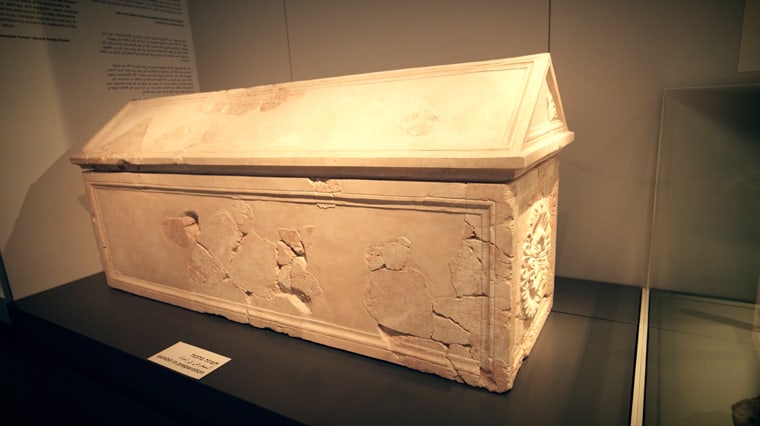
In 4 BC when he was 69, Herod the Great at last surrendered to a horrendous torment that came to be known as “Herod’s Evil.” The infection was excruciating to such an extent that Herod attempted to end it all to get away from the agony. The ruler’s substance was supposedly filled with worms and an exceptional tingling, excruciating entrails and spasms tormented him. Gangrene additionally pervaded the King’s private parts. It was a horrendous method to bite the dust. Specialists presently accept that Herod was experiencing various sicknesses on the double, including kidney illness and Fournier’s gangrene that might have created in the King’s privates when an entrail and urinary disease spread to his crotch. He was additionally presumably experiencing some type of gonorrhea.
4-Herod requested his sister to kill his adversaries after his demise.
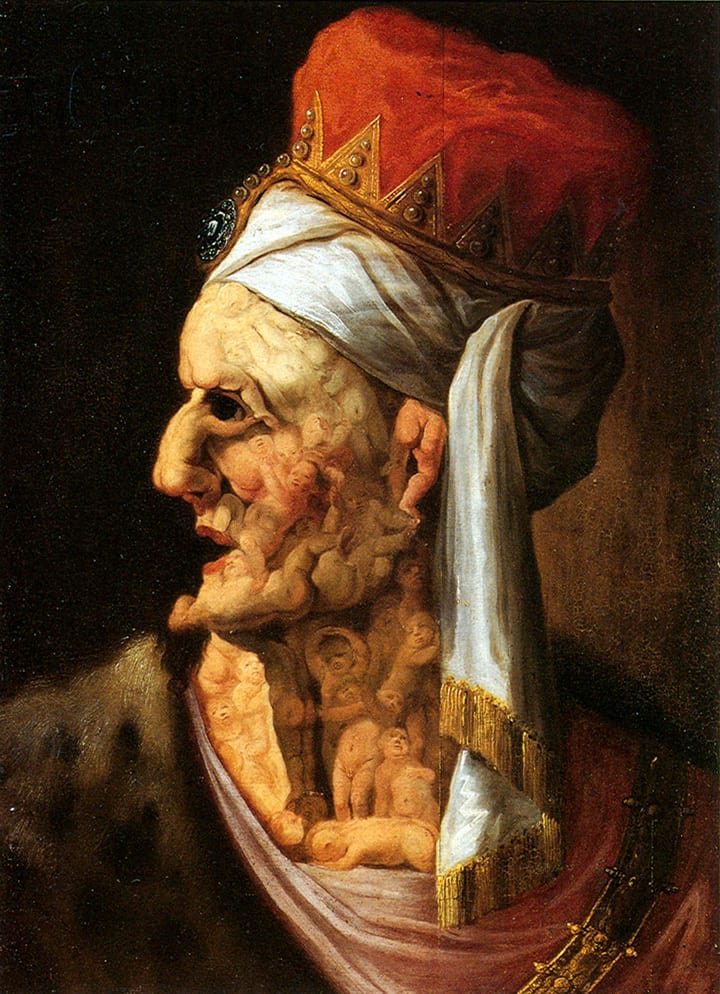
Individuals may have assumed that the possibility of death would control Herod’s dangerous inclinations. Be that as it may, even in the pains of distress, the ruler was plotting more massacre. Herod left unequivocal orders with his sister, Salome, that in case of his passing, she was to arrange the execution of a gathering of conspicuous and famous people of note. Herod realized that nobody would grieve his passing. Along these lines, he picked people whose downfall would cause the most extreme measure of distress, which would make festivities to stamp his demise. In any case, Herod’s last desire stayed unfulfilled. None of the men kicked the bucket, and Herod’s demise passed with no demonstration of public anguish.
3-Municipal Unrest broke out, and Herod’s realm split.
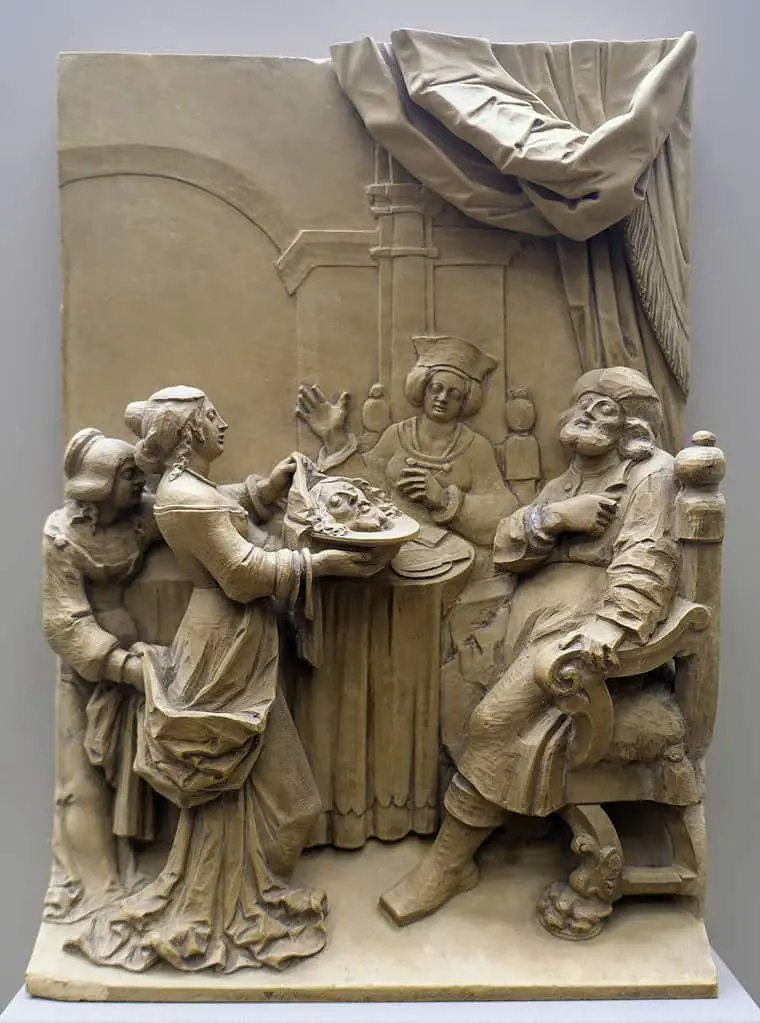
Herod’s demise may have passed without grieving or festivity. Be that as it may, community agitation ejected. During Herod’s last days, energized by the lord’s fast approaching end, a gathering of understudies eliminated the brilliant hawks Herod had set at the passage of the Temple of Jerusalem, guaranteeing they were bogus icons. Two mainstream educators, Judas and Matthias, had impelled the understudies. Once caught, understudies and educators were all singed alive. When Herod was dead, Augustus upheld his will and split his domains between his three enduring children. Herod Antipas acquired Galilee and the east bank of the Jordan, Philip turned into the leader of the Golan Heights, and Archelaus became leader of Samaria and Judaea.
2-Herod was covered in Herodium. His burial chamber was rediscovered in 2007… however not his body.

Josephus portrayed how Herod’s body was conveyed by “200 furlongs’ from Jerusalem to Herodium. Here, the expired King had provided orders for his burial place to be worked close to a pool called the Serpent’s Pool. The developers appropriated private gardens and land which they leveled, and the burial place was built mostly up a slope. In 2007, archeologists utilized Josephus’ portrayal to pinpoint the specific area of the burial chamber. They uncovered and found that Herod’s stone coffin, albeit broken, stayed inside. Nonetheless, there was no indication of Herod’s body.
1-Herod’s palace at Masada, however, contains a positive relic.

In 1963, archeologists uncovered Herod’s castle at Masada. They found a reserve of seeds on the site that demonstrated to have a place with a types of Judean date palm specialists had accepted to be terminated for almost 1,000 years. In 2005, one of the seeds was planted and developed and the subsequent plant was named Methuselah due to its incredible age. Nonetheless, the plant was male thus unfit to deliver natural product. It appeared as though Methuselah was at long last bound to cease to exist until in 2015 additional seeds were planted. These developed into female plants, which means Methuselah’s future is guaranteed. Herod’s authentic standing may have been one of bloodletting and passing. Be that as it may, in any event this piece of his heritage is one of life.